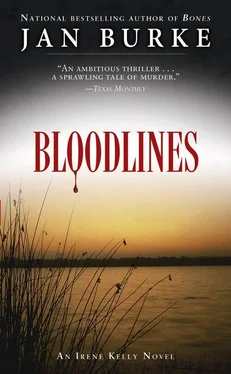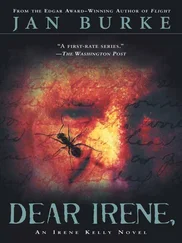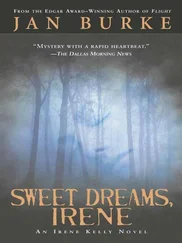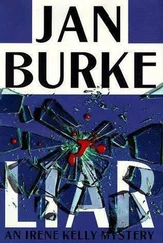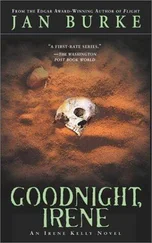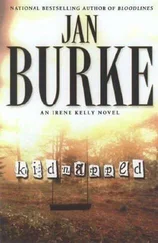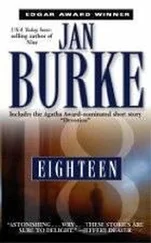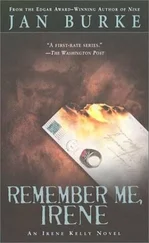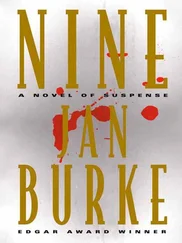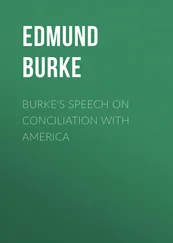“Sure, great to see you. I was just about to make breakfast. Have you eaten?”
“Yes-I’ve eaten. But don’t let me hold you up.”
I motioned him inside. “Come and talk to me while I get busy in the kitchen.”
“Is your husband here?”
“Yes, he’s in the shower. Let me tell him you’re here.”
“That’s okay-I came here to talk to you, anyway. I just thought-well, I’ll ask him later.”
He followed me into the kitchen, sat at the counter, and accepted an offer of coffee. He watched while I put a couple of slices of bread in the toaster.
“So, what’s up?” I asked.
“Barbara tell you we’re moving?”
“Yes. A house not too far from here, right?”
“Right. Thought we’d make a fresh start this time around.”
“You’ll like the area,” I said, not commenting on the fresh-start part. I kept trying to make myself forgive him for some of the horrible things he had said to Barbara when he was going through man-o-pause. For fooling around on her. I supposed I should get over it, since obviously she had.
There is a distance between “should forgive” and “have forgiven” that is sometimes hard to cross.
“Well…” he said, then stalled.
I waited. Eventually he started up again. “I have some old stuff of my dad’s. I thought you might like to have it.”
“Stuff of your dad’s? Kenny, I saw what was left of his house when he was…when he died. Everything burned to the ground. You lost everything…right?”
“Yeah, everything.” He fell silent again. The toast popped, and I set it on a plate. Maybe Frank would want it. My appetite was gone.
Deke, one of our big mutts, sidled up to him. “Well,” Kenny said, reaching down to pet her, “you might not remember this, but after Barbara and I separated, I moved back in with my dad. He had filled my old room up with a lot of papers and stuff, and so when I came back home, he dumped it into boxes and carted it all over to this storage place.” He opened his wallet and pulled out a business card and handed it to me.
“U-Keep-It Self-Storage,” I read. I flipped it over. Scrawled on the back, in a hand I would have recognized anywhere, O’Connor had written “#18B.”
“It might just be junk,” Kenny said quickly.
“Haven’t you looked through it?”
He paused, went back to petting Deke, then said in a low voice, “I can’t.”
After a moment, I said, “I understand.”
He nodded, not looking up at me. Dunk, our other dog, saw what he was missing and crowded him on the other side of the chair.
“If they’re getting obnoxious, I’ll put them out,” I said.
“No. No-I like dogs. Might have room for them at this new place.”
“You’ve been paying the rent on this storage place all this time?”
He nodded again. He reached for his keys and pulled one off. “Almost forgot. You’ll need this to open the padlock. The code to get into the gate is four-six-four-five.”
I frowned. “Everyone who rents there knows that code?”
“No, Dad made that one up for himself. Each person has his or her own. And there are cameras all over the place. But you can change the code if you want to-just see the guy at the counter, and he’ll put your new one in the computer. I guess he was a friend of Dad’s.”
“He made them wherever he went.”
Kenny smiled. “True.”
“You sure you want me to have whatever is in there? Maybe there will be things you’ll want.”
“If it’s just papers and stuff like that, I don’t really want them. Otherwise-you can let me know if there’s something you think I’ll want. I trust you.”
That statement left me speechless.
Frank came out then, and Kenny visibly relaxed. “Hey, Frank-how’s it going?” They shook hands and almost immediately began talking about weekend sports.
Frank glanced over at me, his gray-green eyes full of amusement, and reached for the cold toast.
“Let me heat it up for you,” I said, a bit of domesticity that made him raise his brows even as he thanked me. I put the toast back in the toaster.
Kenny said, “Do you know much about this DNA stuff, Frank? I mean, being a homicide detective and all, of course you do, but…well, can I ask you about it?”
“Sure. What’s on your mind?”
“My dad’s only living brother is coming over from Ireland in a couple of months.”
“Dermot?” I asked.
“Yes. What I was wondering is-I’ve heard you can tell about paternity from DNA, even if you don’t have a sample from a living parent.”
“Yes, that’s true. You just need a relative descended from the same person.”
“So I could find out if my dad was really my dad from a sample of Dermot’s blood?”
“Yes. You’d each have to provide a blood sample, and you’d have to have it done by a private lab. It can be expensive-about fifteen hundred or more. Takes about four to five weeks.”
“Oh. Well, that makes sense, I guess.”
“Is that something you want to do?”
“I don’t know. I’m just thinking about it, that’s all.” He sniffed the air and said, “I think your toast is burning.”
Later that morning, I sat at O’Connor’s desk in the newsroom. It was my desk now, at least as far as the newer staffers were concerned, and I called it mine, but that was for convenience’ sake. I could never truly think of it as mine rather than his, and I know most of the staffers who had known him felt the same way-I was a tenant, not a proprietor. It’s one of the last of the old-style desks in the newsroom, and I have resisted all attempts to get me to exchange it for a piece of plastic on metal tubes. The publisher has heard me threaten to quit if it’s moved an inch from where it is.
Winston Wrigley III, the jerk who inherited his late father’s job, knows that isn’t an empty threat. I quit the paper in the late 1980s after he failed to fire someone for sexually assaulting another staff member. I was gone from the Express for a couple of years. I came back because it was the only way I was going to find out who had killed one of my closest friends-my mentor, Conn O’Connor.
The same people who had been responsible for Kenny’s beating had been responsible for O’Connor’s murder. O’Connor had died because he got too close to the truth while covering a story. I followed the leads he had worked so hard to discover, and his killers were brought to justice. It didn’t ease the loss.
The homicide detective working on the case was a man I had known in Bakersfield, Frank Harriman. Though he moved to Las Piernas in 1985, we didn’t manage to reconnect until O’Connor’s death. To the shock of everyone who had written me off as a woman who would be single all her life, we had married.
I’m Irish enough to think O’Connor’s spirit had a hand in that.
Maybe because I held the key to his storage unit in my hand, I could feel him looking over my shoulder in the newsroom that morning. I still missed him terribly and often wished I could hold another conversation with him, to tell him he was right, that newspaper work was in my blood, and that I had wanted to come back to the Express all along-but mostly to listen to his voice, his laughter, at least one more time.
I looked around me and wondered if he would want to work here these days. Not so much as a whiff of cigarette smoke, but that wouldn’t have bothered him. A bigger problem would be that a Starbucks Double Latte was about the strongest drink anyone kept near his desk.
No, that wouldn’t be the biggest problem. The biggest problem would be that someone had come by, vampirelike, and sucked the life’s blood out of the place while we were all trying to make deadline.
Nearby, I heard other reporters murmuring into headsets and the soft snicking of computer keyboards. The hum of the fluorescent lights overhead provided the loudest noise in the room. Quiet as a damned insurance office, and looked like one, too.
Читать дальше
